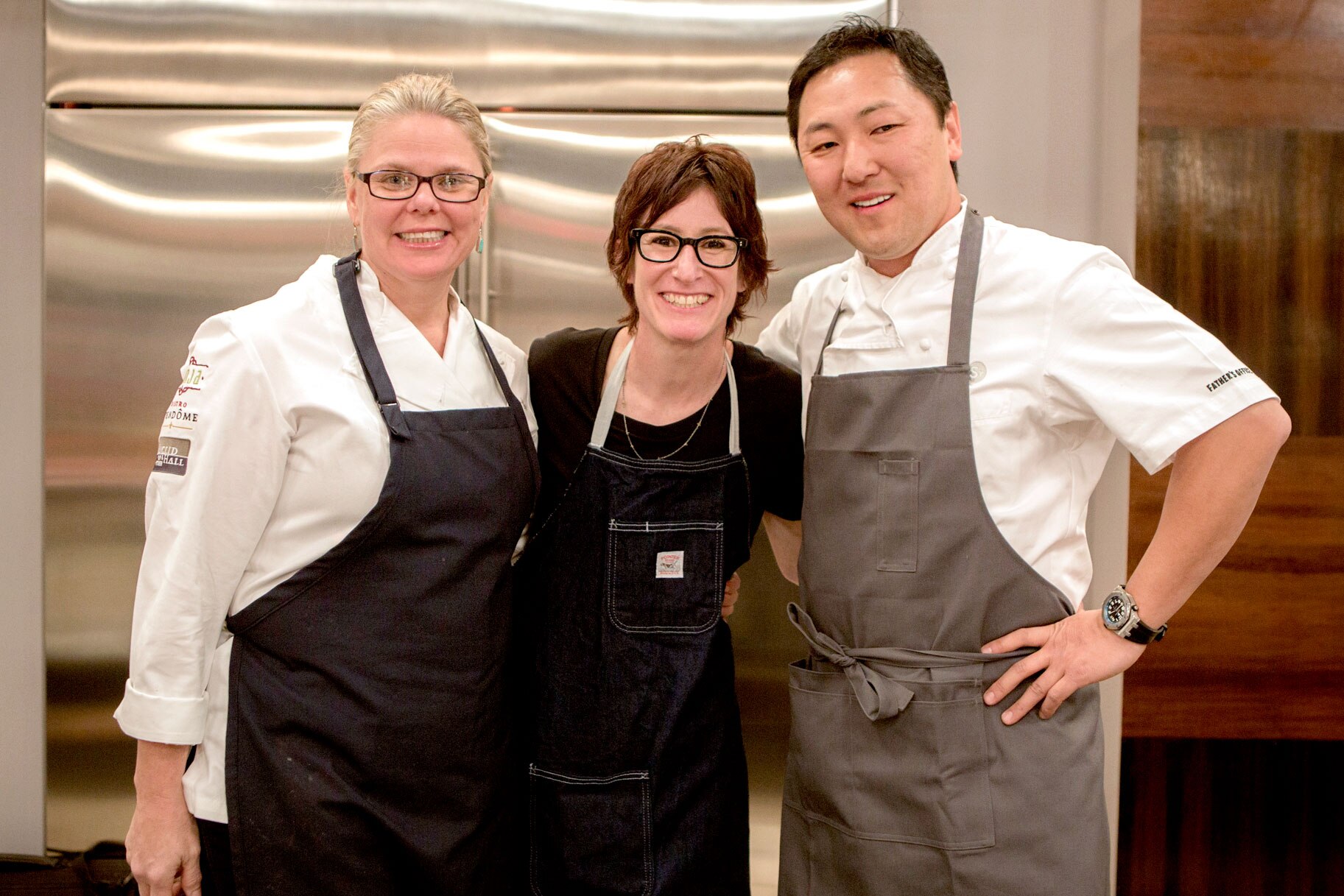James Oseland: "It Doesn't Hurt to Try"
James make a case for stepping out of one's comfort zone.

The big moral takeaway from this episode for me -- one in which at least two of us faced down foods we'd rather not eat only to discover that we loved them -- is the great value to be found in plunging headfirst into the unknown. Life is short, try it all—you never know what's going to surprise you with its wonderfulness. To paraphrase Kathie Lee: you never know what's going to be your personal deep-fried shrimp head.
The less we box ourselves in, the less we stick to what we know and what we're comfortable with, the more we have access to what's out there. Try the fried shrimp head, or the chicken heart: you'll have a new thing to add to the list of things you love. (Or, if you don't, you've nevertheless got a good story about chicken hearts to tell at your next cocktail party.)
I may try to live (and eat) by the principle of Try It All, but it's not always easy—especially on the Top Chef Masters set. I'm not big on raw meat, for example, but tartares aren't always easy to avoid. Still, I find myself delighted far more often than I'm disappointed: last year, on Season 4, chef Chris Cosentino presented the judges with a heart tartare that was one of the more difficult things I've had to bring myself to eat, but once I had that first bite of the exquisitely prepared, earthy, savory dish, I was instantly converted. It had been worth overcoming my qualms. I'm still not sure I'd seek it out and order it in a restaurant, but it made me a better person (and a better eater) for having experienced it—and the same goes for a number of the foods I tried on this week's episode.
Chief among those was Douglas Keane's exceptionally wonderful riff on cookies and cream, which you may have noticed I was pretty skeptical about. I have a cynicism about savory desserts: I like my desserts to be sweet and honest, and more often than not, I find the incorporation of savory flavors to be indicative of what I think of as "dessert shame," an unwillingness to capitulate to the simple joy of a sweet ending to a meal. But what Douglas created was great, even with its complexity of flavors—green tea, herbs, and spices-- it hit a bull’s-eye on my target of what a dessert should be. Sure, it may have looked like a Dixie cup full of foam, but from the moment it hit my palate, it was clear that this was a marvelous invention, a perfect balance of flavors and textures.
His companions in the top three also produced exceptional dishes. Bryan Voltaggio's take on chicken and dumplings had marvelous components: wonderful dumplings, lovely pieces of crisped chicken skin. But what blew me away (and the other judges, particularly Francis) was the broth. Chinese-style chicken broth involves cooking it for eight or nine hours, simmering it away with aromatics and herbs to produce a slightly bitter, slightly sour, slightly sweet flavor that's in perfect balance. And somehow, miraculously, Bryan produced this depth of flavor in just two hours, thanks to some ingenuity and some pretty spectacular pressure cookers.
The winning dish, Sang's rendition of fried shrimp and coleslaw, was inspired by a classic Burmese salad made with fermented tea leaves, one of my all-time favorite dishes. And my God, was this a joy to eat: the riot of flavors and textures, peanuts and fried garlic and cabbage and a spot-on, sweet-tart dressing, all melded in a beautiful way. The shrimp, its body poached and its head crisp-fried, brought it all together; the head in particular was revelatory, an ideal counterpoint in both flavor and texture to everything else on the plate. (Even Kathie Lee thought so, once we convinced her to take a bite.)
As for the dishes in the bottom three—well, they were the sorts of dishes I'm happy to have tried, but more for the story behind them than the actual experience. Odette, Jenn, and Sue's dishes all had certain components that were wonderful — Odette's strangely lovely pasta, Jenn's exquisite meatballs, Sue's well-balanced lobster roll and clever workaround with the subpar bread—but they all also faced serious issues in execution. Ultimately, despite Odette's almost inedible gummy fish balls and Sue's inconveniently sharp pieces of lobster shell, it was Jen's ungainly, inelegant (though, minus its bread, quite delicious) banh mi that wound up sending its creator home.
Jenn mentioned on the episode how much she dislikes having to deviate from classic recipes, which explains why she wouldn't ditch her terrible bread or try to create a more finessed take on the banh mi. But if this elimination proves anything, it's that (like Kathie Lee and the shrimp head, or me and that heart tartare) Jenn should have fought her way out of her comfort zone and at least given something new a try. It may not have saved her, but then again, maybe it could have. It doesn't hurt to try.
James Oseland is the editor-in-chief of Saveur.



